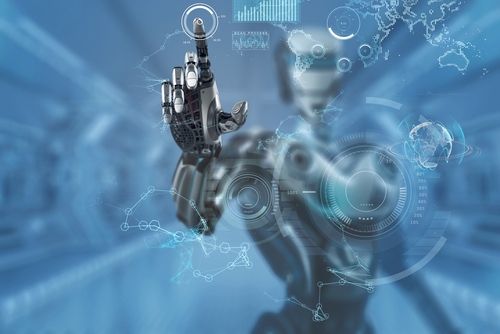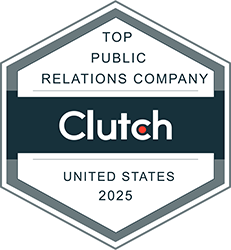While most of us have gotten over the fear that artificial intelligence is some insidious robot plotting to take over the world, we may linger on another, more plausible concern: AI is coming for our jobs.
Artificial intelligence is already largely inculcated in our day to day routines (think Pandora stations, Amazon suggestions, Netflix options), but many of us can’t help but feel uneasy about what further advancements of this technology might mean for our respective industries. How plausible is this fear that AI will make human employees obsolete?
It certainly isn’t something to write off completely; for example, artificial intelligence is set to replace more than 30 human workers in a Japanese insurance firm this year. But that’s not to say the firm will eventually be able to operate without human employees. All final payments must still be processed by human staff. And that’s the key to this whole AI conundrum. It’s about the collaboration of human and machine, not the supersedence of one over the other.
But what does this all mean for the public relations industry? PR professionals have been rather reluctant to acknowledge the momentum of AI trends: only 3% of industry-specific articles even mention it (which made writing this blog quite the experience). A lot of it is uncharted territory, but there are some fundamental ways the industry will see improvements if it can effectively harness the relationship between human and machine:
You’ll never miss anything
Sure we have Google Alerts and Talkwalker notifications to keep an eye on all the latest news and trends, but these are all pretty rudimentary compared to what the future has in store. Imagine working with a machine that understands who your client is and only offers the most relevant news results. Then you could make sure you were on top of every mention of the “Ring” video doorbell, for example, without your inbox being clogged with irrelevant mentions of jewelry or crime-rings. AI could even have the capacity to alert you when your competitor gets an abnormal uptick in coverage and offer suggestions on how to optimize your response strategy.
The important thing to note is that machines can help provide essential information in an efficient manner, but it is still up to an agency’s human employees to determine the best way to react and proceed.
Target audiences will be better optimized
Like AI, big data is another unstoppable entity; there is more information available about consumers today than ever before. For PR professionals, this means that we have the potential to create hyper-specific material that is, in theory, perfectly aligned with our audiences’ interests. But big data is merely a tangled mess of information without any sort of organization. And that’s where, you guessed it, AI comes in. With massive amounts of information compiled in a digestible way, PR professionals can make better sense of the big data they receive and plan future strategies more effectively.
AI also has the capacity to better optimize media relations. Imagine asking a chatbot to show you the top travel influencers on Instagram and receiving an accurate list of relevant accounts in real time. From there you could refine that list as needed just by asking the bot to show only US based influencers or influencers with a certain number of followers. Sure there are databases that have some of these capabilities, but often the information they return is outdated, irrelevant or still requires a good amount of refinement. The more advanced AI becomes, the easier it will be to pin down the most pertinent people for your outreach and engage with them before your competition does.
Creativity will flourish
All these AI applications will help PR folks save a ton of time on longer projects, resulting in increased opportunities to focus on what really defines a PR agency: ideas. Some companies have even been experimenting with automating things like earnings reports to maximize their creative engagement. And while artificial intelligence in the public relations sector is still a developing phenomenon, it’s not hard to see the significant impact its potential has.
Instead of worrying if machines will take our jobs, we should be more focused on how they can improve our own efficiency and creativity. The reality is, this trend isn’t going away; the ability for a PR agency to embrace and employ AI wisely may just be the thing that differentiates a good agency from a great one.
How do you think artificial intelligence will impact the PR industry? Let us know in the comments below or by tweeting us @BIGfishpr!


